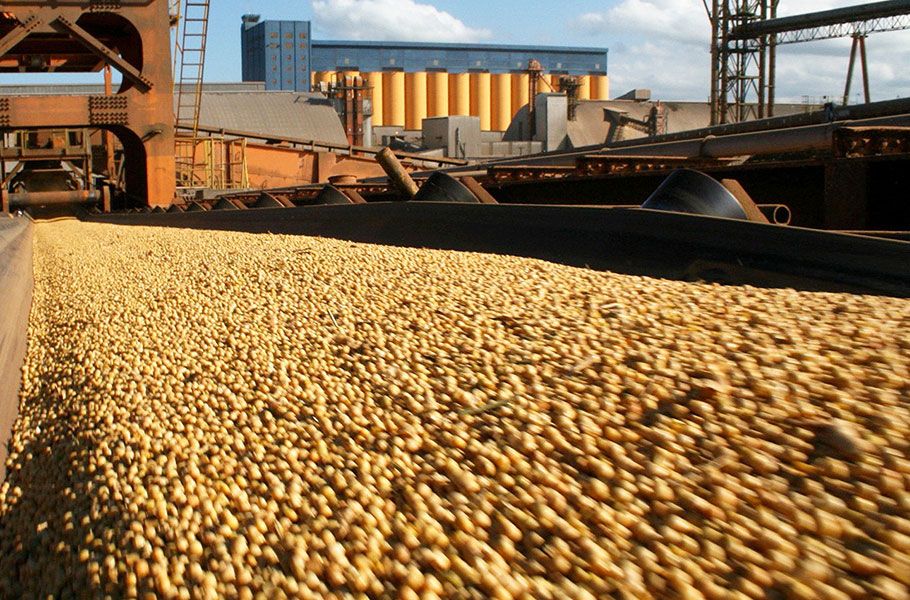
当前位置:新闻动态
Amazon River soybeans blocked by protests, poor roads
来源:https://www.shippingazette.com/ 编辑:编辑部 发布:2025/04/10 08:42:57
INDIGENOUS protests and poor roads have disrupted shipping of Brazil's bumper soybean crop in recent days via the river port of Miritituba in the Amazon rainforest, reports Reuters.
This has been a worry for global food giants like Cargill and Bunge which have important operations.
Abiove, an association representing grain handlers, said road access to Miritituba has remained under partial or total blockade for two weeks, preventing the shipment of around 70,000 tons of grains per day, which corresponds to almost US$30 million in product value.
In a joint statement with farm group Aprosoja Brasil and private ports operator lobby ATP, it urged authorities and civil society to find a quick solution as the blockades disrupt not only grain shipments but also people movement and the arrival of critical goods and services.
Demand for soy from Brazil, the world's largest producer and exporter, has surged in No 1 consumer China as traders brace for a trade war discouraging Chinese imports of US soybeans.
Miritituba loaded 15 million tons of soy and corn last year onto barges bound for larger shipping ports down river, representing more than a tenth of Brazil's total exports of those grains. Volumes at the port are expected to rise around 20 per cent this year.
Protesters from the Munduruku people have been blocking a key stretch of the Transamazonian Highway near Miritituba at certain hours of the day to pressure Brazil's Supreme Court to overturn a 2023 law aimed at limiting their land rights.
That has worsened backups along an unpaved five-kilometre stretch of the road. Trucking group ANATC said the traffic has left some cargoes waiting three days to unload at Miritituba.
AMPORT, which represents the largest firms shipping from the terminal, said truckers with pre-scheduled access have not suffered those wait times at the port.
Still, AMPORT President Flavio Acatauassu estimated each hour of the protesters' blockade prevents at least 12,000 tons of soybeans from arriving at the terminal.
Rafael Modesto, a lawyer for the Indigenous Missionary Council, which argues for indigenous interests before the Supreme Court, said the protest reflects fears among native peoples about losing their lands to an advancing farm frontier.
Brazil's powerful congressional farm lobby has been at odds with the Supreme Court over a proposed cut-off date for new reservations on lands where indigenous people were not living in 1988.
"We believe that, if any proposal that changes the text of the Constitution goes through, demonstrations like this one may become more frequent all over Brazil," he said.

